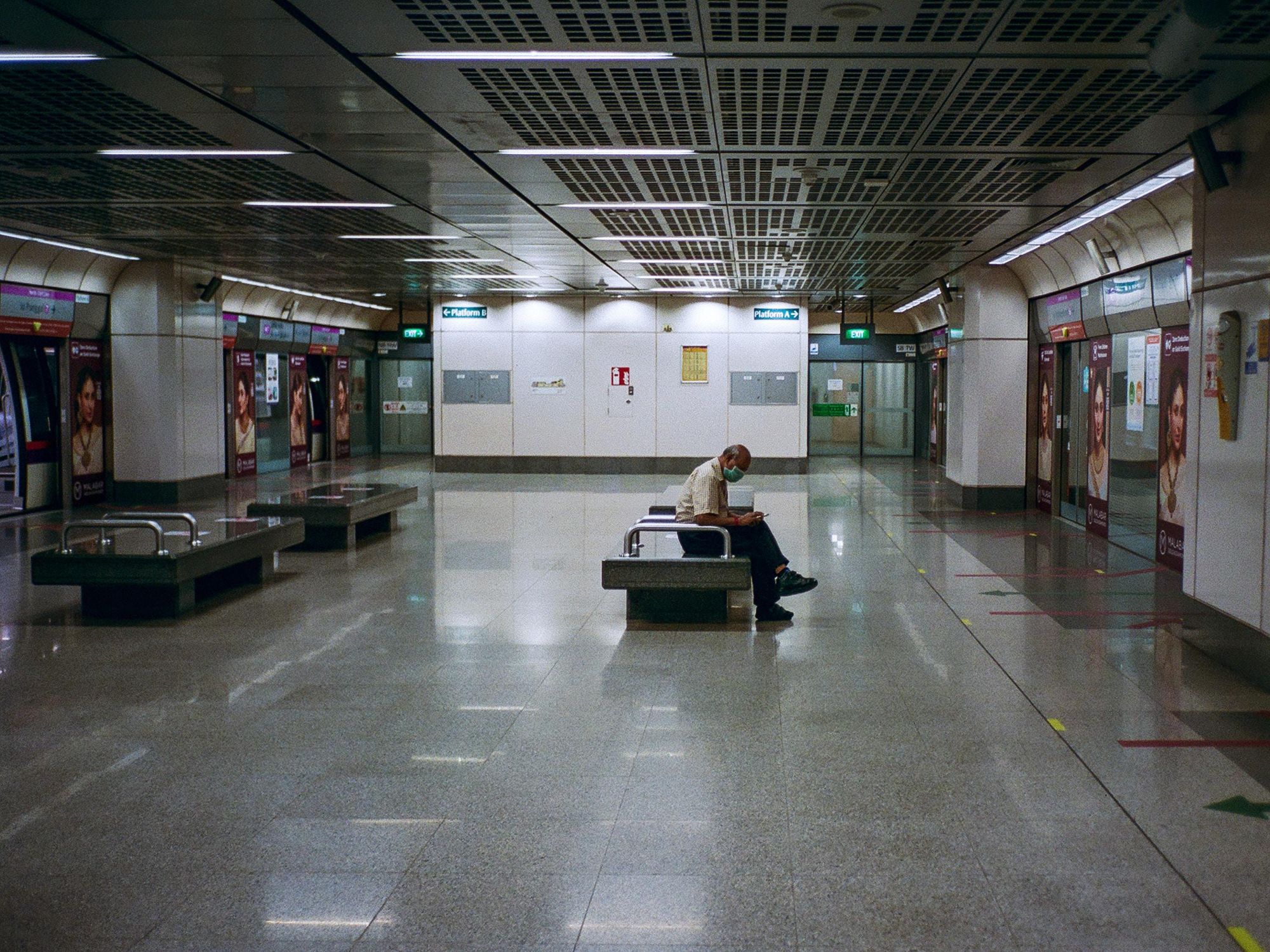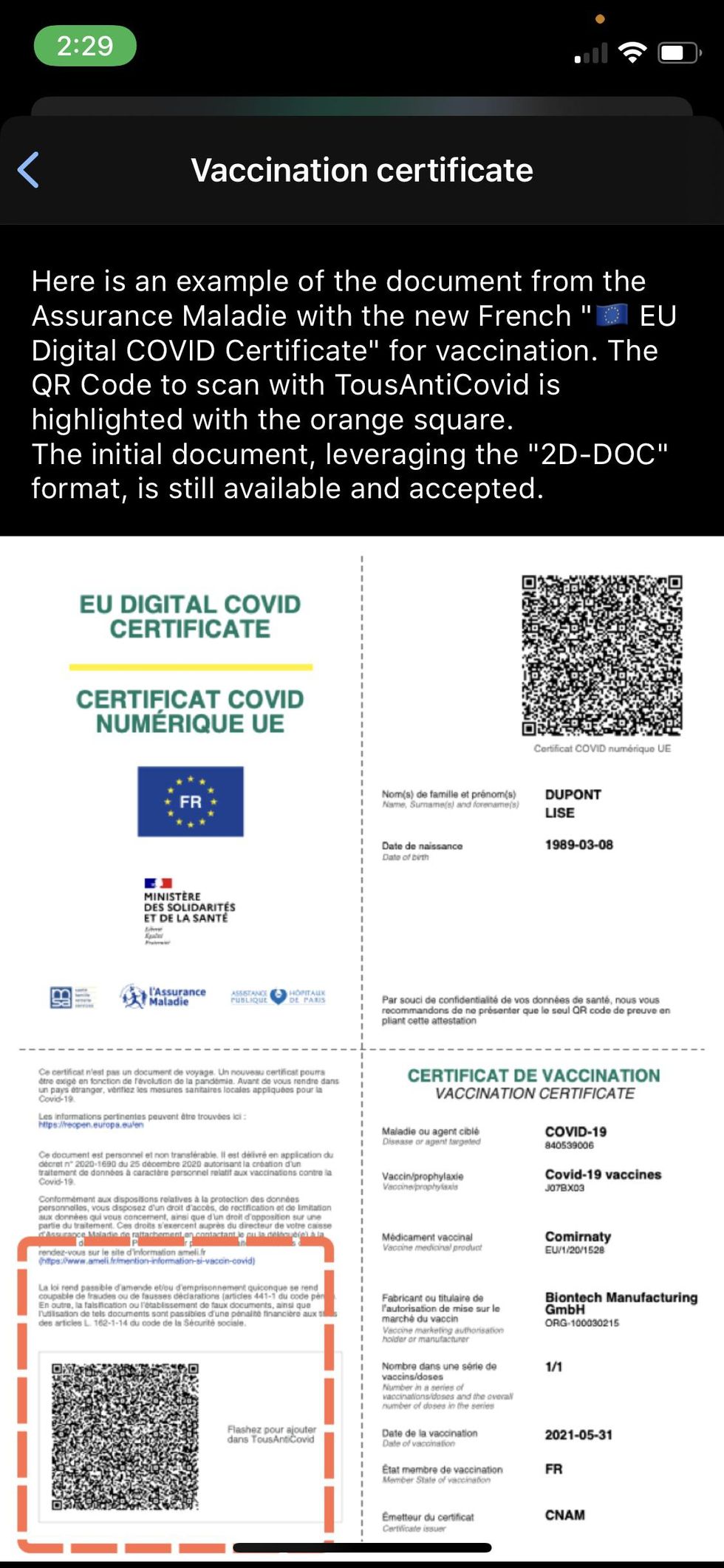Could the EU’s Universal COVID Passport Serve as a Blueprint for the US?
Keerthi Vedantam is a bioscience reporter at dot.LA. She cut her teeth covering everything from cloud computing to 5G in San Francisco and Seattle. Before she covered tech, Keerthi reported on tribal lands and congressional policy in Washington, D.C. Connect with her on Twitter, Clubhouse (@keerthivedantam) or Signal at 408-470-0776.

With the European Union weighing blocking American travelers from visiting, a group representing hundreds of the world's airlines called on countries around the world earlier this week to adopt a COVID digital passport used by the E.U.
"In the absence of a single global standard for digital vaccine certificates, it should serve as a blueprint for other nations looking to implement digital vaccination certificates to help facilitate travel and its associated economic benefits," Conrad Clifford, deputy director general of the International Air Transport Association said in a statement.
The E.U.'s solution, a standardized paper and digital certificate that could be used across the E.U, was first proposed in November and has now reached full adoption in all 27 E.U. countries, and even non-E.U. countries like Switzerland, Turkey and Norway. It could also be appealing to global companies as they implement stricter rules requiring workers and customers to get vaccinated or tested.
Jakub Hlávka, a health policy fellow at the USC Schaeffer Institute who has been looking at the ethics of COVID passports, said these types of passports are especially useful for countries who don't want to limit travel and hurt tourism, while also slowing the spread of the coronavirus.
"A vaccination travel certificate would actually prevent the introduction of cases from countries not covered under travel bans, most notably Mexico, where a lot of people can get infected with delta and bring it into the U.S. without any strong precautions in place," he said.
Here's how it works:
The Digital COVID Certificate, as the passport is called, uses a framework that the E.U. developed so all digital COVID vaccination cards are standardized and can be verified quickly in every participating country.

Each country has a digital and paper version of their vaccination cards. Some countries, like France, have created a downloadable app that stores the DCC. France's app TousAntiCovid, and Italy's Immuni, allow residents to upload their vaccination record and negative COVID tests. Other countries like Belgium rely on a web app or a saved PDF.
There is no universal platform that's used across the E.U.
Non-E.U. residents can ask the country they are traveling to for a DCC, provided that country will accept their proof of vaccination. Only four vaccines (Pfizer-BioNTech, Moderna, Johnson & Johnson and AstraZeneca) are accepted by the E.U., meaning Covidshield, a vaccine that has been distributed across low-income countries, is not accepted by the E.U. at large (though some countries will accept it).
The certificate contains one's name, date of birth, COVID-19 vaccine or test information, the date the record was issued and, in a QR code, a unique digital signature every health provider administering the vaccine has.
This digital signature confirms patients have gotten the vaccine, and every country in the E.U. has access to those signatures to verify the legitimacy of the vaccination record. Other information like name and date of birth are not recorded.
The E.U.'s fix for safe travelling in a post-pandemic world is the most-used solution, allowing people to move within the member countries while allowing each flexibility. The IATA said 60 other countries are using the DCC as a blueprint for their own national system.
California's Digital COVID Vaccine Cards
The widespread adoption of a standardized pass in Europe is in stark contrast to the U.S., which has not pursued any national form of verification outside of the easy-to-replicate CDC-issued paper vaccine cards. States have come up with their own solutions, like California's digital vaccination record and New York's Excelsior Pass, both of which can be used to enter businesses that have some sort of vaccine mandate. But neither are valid for travel in and out of the country, even as the Biden administration continues to uphold the E.U. travel ban.
Creating a National COVID Passport
The biggest hurdle for the U.S. is to build a digital infrastructure that maintains a national registry. That would require real-time data collection from every state. Right now, states have separate data collection streams that harbor information about who is vaccinated, and when they got vaccinated. If a California resident got one vaccine in California, and another in a different state, California's digital vaccination record won't show proof of the second vaccine.
Most countries with a national digital vaccination standard are able to use existing infrastructure from having a form of universal health care. The E.U. leveraged its eHealth Network, a network used by every member of the union. Israel, which developed the Green Pass, also has a compulsory health care plan.
Many states in the U.S. haven't created a centralized state system, making it difficult for 50 states and U.S. territories to coordinate on a standardized system. But the CDC and other agencies regularly collect state and municipal data to track the spread of COVID-19.
Hlávka said the U.S. might be better off considering an opt-in registry that is recognized by other countries, whereby those who want to travel out of the country can voluntarily upload their vaccination record and show proof.
"If we asked a few programmers in Silicon Valley, we could have this in a few hours," Hlávka said. "This is not technically difficult."
And as the U.S. travel ban on the E.U. persists, and the E.U. considers banning American travelers as well, Hlávka said the lack of standardization and a national system is preventing families from reconnecting and hurting tourism.
"The status quo is hurting the U.S. economy and reopening travel, possibly using a mutually recognized vaccination certificate/passport, would be a safe way to reopen borders and increase incentives to get vaccinated," he said.
- Study Says Travel Restrictions Can Delay, but Can't Defeat a Global ... ›
- COVID Vaccine Passports: A Crowded and Unregulated Market - dot ... ›
- Welcome AI Travel App Launches on Apple Store - dot.LA ›
- Seven Travel Apps to Make Your Holidays Easier in 2021 - dot.LA ›
- Connect, Universal Hydrogen Partner on Electric Airliner - dot.LA ›
Keerthi Vedantam is a bioscience reporter at dot.LA. She cut her teeth covering everything from cloud computing to 5G in San Francisco and Seattle. Before she covered tech, Keerthi reported on tribal lands and congressional policy in Washington, D.C. Connect with her on Twitter, Clubhouse (@keerthivedantam) or Signal at 408-470-0776.





 Image Source: Skyryse
Image Source: Skyryse